Related Research Articles

Lesbian, gay, bisexual, transgender and queer (LGBTQ) movements are social movements that advocate for LGBTQ people in society. Although there is not a primary or an overarching central organization that represents all LGBTQ people and their interests, numerous LGBT rights organizations are active worldwide. The first organization to promote LGBT rights was the Scientific-Humanitarian Committee, founded in 1897 in Berlin.
"Gay agenda" or "homosexual agenda" is a pejorative term used by sectors of the Christian religious right as a disparaging way to describe the advocacy of cultural acceptance and normalization of non-heterosexual sexual orientations and relationships. The term originated among social conservatives in the United States and has been adopted in nations with active anti-LGBT movements such as Hungary and Uganda.

The rights of lesbian, gay, bisexual, and transgender (LGBT) people in Singapore have evolved over the decades. Same-sex sexual activity is legal for both males and females; for men it was officially legalised in 2022 after being de facto decriminalised since 2007, and for women it was always legal. Prior to 2022, same-sex sexual activity between males was de jure illegal under the British colonial-era Section 377A of the Penal Code. The law had been de facto unenforced for decades. In February 2022, the Court of Appeal in the Supreme Court reaffirmed that 377A cannot be used to prosecute men for having sex with other men, and that it is "unenforceable in its entirety". Transgender rights in the country are also progressive in the region, which included Singapore being the first country in Asia to legalise sex reassignment surgery in 1973.
Homosexuality in India is socially permitted by most of the traditional native philosophies of the nation, and legal rights continue to be advanced in mainstream politics and regional politics. Homosexual cohabitation is also legally permitted and comes with some legal protections and rights.

Lesbian, gay, bisexual, and transgender (LGBTQ) people in the Islamic Emirate of Afghanistan face severe challenges not experienced by non-LGBT residents. Afghan members of the LGBT community are forced to keep their gender identity and sexual orientation secret, in fear of violence and the death penalty. The religious nature of the country has limited any opportunity for public discussion, with any mention of homosexuality and related terms deemed taboo.
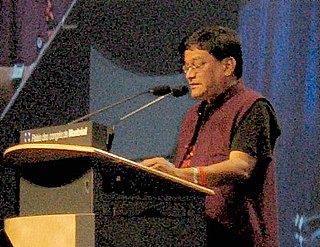
Ashok Row Kavi is an Indian journalist and LGBT rights activist.
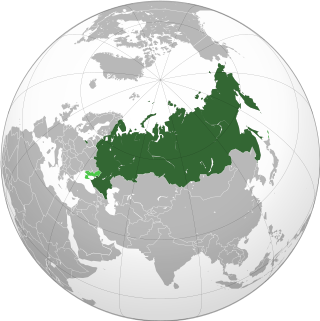
Lesbian, gay, bisexual, and transgender (LGBT) people in Russia face severe challenges not experienced by non-LGBT residents. Although sexual activity between consenting adults of the same sex is legal, homosexuality is disapproved of by most of the population and pro-LGBT advocacy groups are deemed "extremist" and banned. It is illegal for individuals to "promote homosexuality" and same-sex couples and households headed by same-sex couples are ineligible for the legal protections available to opposite-sex couples. Russia provides no anti-discrimination protections for LGBT people and does not have a designation for hate crimes based on sexual orientation and gender identity. Transgender people are not allowed to change their legal gender and all gender-affirming care is banned. There are currently no laws prohibiting discrimination based on gender identity or expression, and recent laws could be used to discriminate against transgender residents.

Lesbian, gay, bisexual, and transgender (LGBT) people in Nigeria face severe challenges not experienced by non-LGBTQ residents. LGBT rights are generally infringed upon; both male and female expressions of homosexuality are illegal in Nigeria and punishable by up to 14 years of prison in the conventional court system. There is no legal protection for LGBT rights in Nigeria—a largely conservative country of more than 230 million people, split between a mainly Muslim north and a mainly Christian south. Very few LGBT persons are open about their sexual orientation, as violence against them is frequent. According to PinkNews, Nigerian authorities generally target the LGBT community. Many LGBT Nigerians are fleeing to countries with progressive law to seek protection.

Lesbian, gay, bisexual and transgender (LGBT) people in Georgia face significant challenges not experienced by non-LGBT residents. However, Georgia is one of the few post-Soviet states that directly prohibits discrimination against all LGBT people in legislation, labor-related or otherwise. Since 2012, Georgian law has considered crimes committed on the grounds of one's sexual orientation or gender identity an aggravating factor in prosecution. The legislative ban on discrimination has been enacted as a part of the Government efforts to bring the country closer to the European Union and make the country's human rights record in line with the demands of Georgia's European and Euro-Atlantic integration.
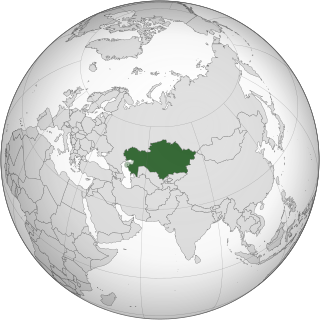
Lesbian, gay, bisexual, and transgender (LGBT) people in Kazakhstan face significant challenges not experienced by non-LGBTQ residents. Both male and female kinds of same-sex sexual activity are legal in Kazakhstan, but same-sex couples and households headed by same-sex couples are not eligible for the same legal protections available to opposite-sex married couples.

Lesbian, gay, bisexual, and transgender (LGBT) people in Uganda face severe legal and social challenges not experienced by non-LGBTQ residents. Same-sex sexual activity is illegal for both men and women in Uganda. It was originally criminalised by British colonial laws introduced when Uganda became a British protectorate, and these laws have been retained since the country gained its independence.
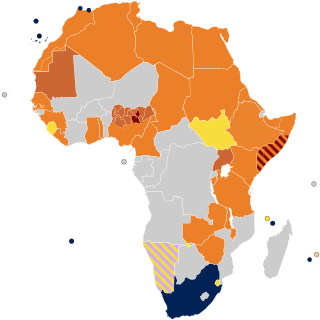
Lesbian, gay, bisexual, and transgender (LGBT) rights in Africa are generally poor in comparison to the Americas, Western Europe and Oceania.
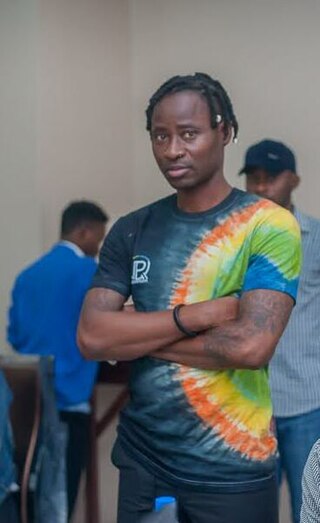
Bisi Alimi is a British-Nigerian gay rights activist, public speaker, blog writer and HIV/LGBT advocate who gained international attention when he became the first Nigerian to come out on television.

Naz Foundation v. Govt. of NCT of Delhi (2009) is a landmark Indian case decided by a two-judge bench of the Delhi High Court, which held that treating consensual homosexual sex between adults as a crime is a violation of fundamental rights protected by India's Constitution. The verdict resulted in the decriminalization of homosexual acts involving consenting adults throughout India. This was later overturned by the Supreme Court of India in Suresh Kumar Koushal vs. Naz Foundation, in which a 2 judge bench reinstated Section 377 of the Indian Penal Code. However, even that was overturned by a 5 judge bench in Navtej Singh Johar v. Union of India in 2018, decriminalizing homosexuality once again.

The majority of the countries of the Commonwealth of Nations, formerly known as the British Commonwealth, still criminalise sexual acts between consenting adults of the same sex and other forms of sexual orientation, gender identity and expression. Homosexual activity remains a criminal offence in 29 of the 56 sovereign states of the Commonwealth; and legal in only 26.

The following outline offers an overview and guide to LGBTQ topics:
Homonationalism is the favorable association between a nationalist ideology and LGBT people or their rights.
Sexual minorities in Sri Lanka have been counted in recent times as consisting of as little as 0.035% of the population to as high as 19.6%. It is likely that there are around 1,100,000 according to current mapping conventions.

Jide Macaulay is an openly gay British-Nigerian LGBTQ rights activist and Anglican minister. Macaulay founded the House Of Rainbow, which provides support for LGBTQ persons in Nigeria.
References
- ↑ "Amazing Nigerian gays and lesbians hold extraordinary meeting - OnlineNigeria.com". onlinenigeria.com. Retrieved 2023-08-23.
- 1 2 Admin. "Odumoye: Once upon a gay rights activist". The Nation. Retrieved 23 August 2023.
- 1 2 "Oludare Odumuye | Ashoka | Everyone a Changemaker". www.ashoka.org. Retrieved 2023-08-23.
- ↑ Unknown (2009-05-23). "Rowland Jide Macaulay: Nigeria: Late Dare Odumuye AKA Erelu of the Gay Community Remembered 2 years On". Rowland Jide Macaulay. Retrieved 2023-08-23.
- ↑ "Oludare Odumuye". Ashoka: Everyone a Changemaker. Retrieved 30 August 2024.